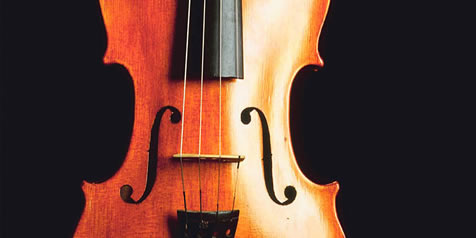Arabic Music Maqamaat
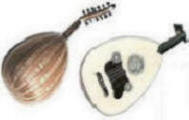 |
 |
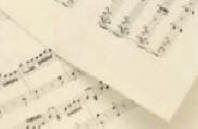 |
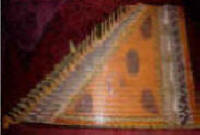 |
Maqam Ajam and Family
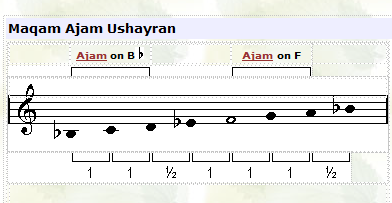 |
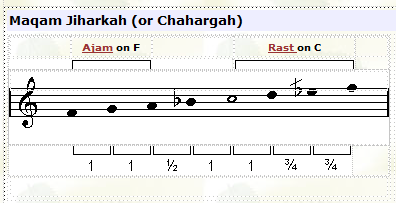 |
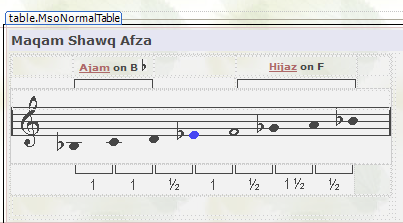 |
Maqam Bayati and Family
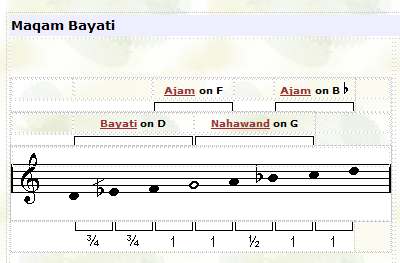 |
.png) This maqam is a very popular
modulation from maqam Bayati This maqam is a very popular
modulation from maqam Bayati |
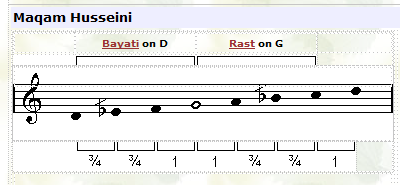 |
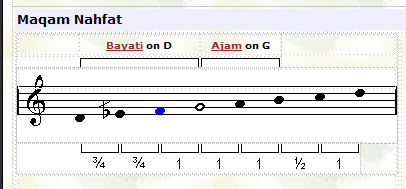 |
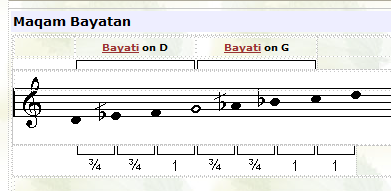 |
Maqam Hosseini is a very popular modulation from maqam Bayati. |
Maqam Hijaz and Family
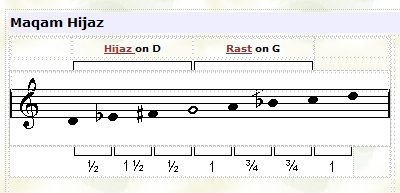 |
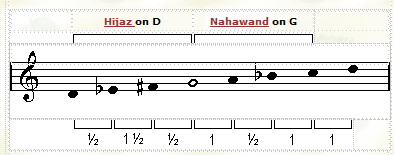 |
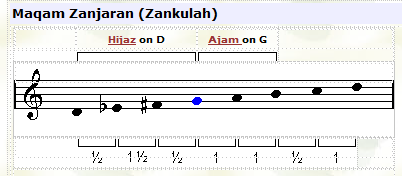 |
Maqam Hijaz has two forms
shown above. Often the (Hijaz-Rast) form is used on the way up, and the
(Hijaz-Nahawand) form is used on the way down. A very important peculiarity of
maqam Hijaz is a microtonal variation where the 2nd note (E
|
Maqam Hijaz Kar and Family
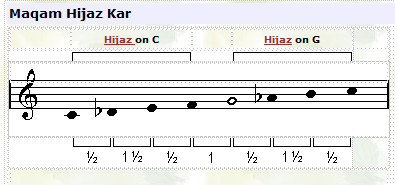 |
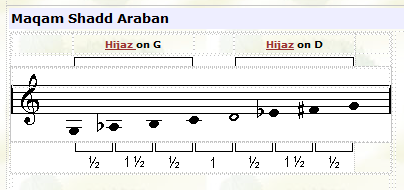 |
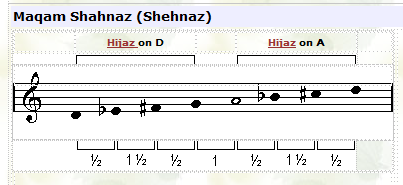 |
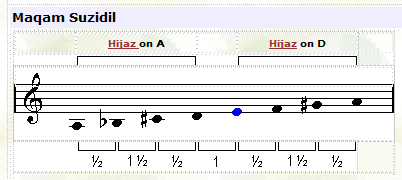 |
Maqam Kurd and Family
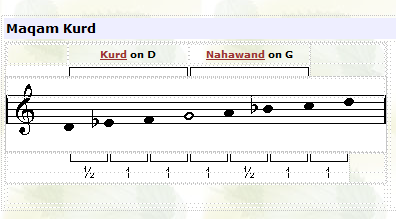 |
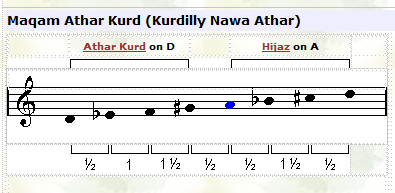 |
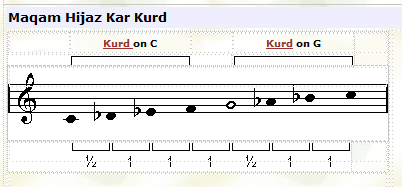 |
Maqam Athar Kurdi:
Notice that the first 3
notes are a partial Kurd
tetrachord, which is often exploited during modulation. See also maqam Nawa Athar which resembles this
maqam, except the 2nd note is 1/2 step lower. Although maqam Hijaz Kar Kurd has the same tonal intervals as maqam Kurd, it is not a transposed version of that maqam, because the dominant in this case is the 5th snote while in maqam Kurd the dominant is on the 4th note. |
Maqam Nahawand and Family
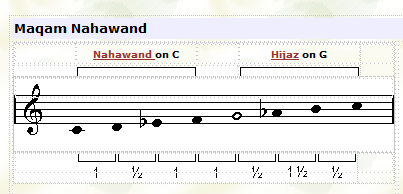 |
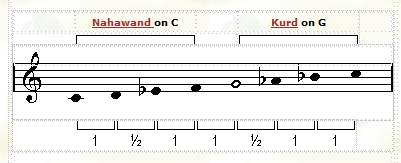 Maqam Nahawand has two versions shown above. In general the first version (Nahawand-Hijaz) is used on the way up, and the second version (Nahawand-Kurd) is used on the way down. |
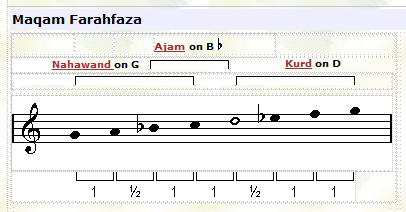 Maqam Farahfaza
has the same tonal intervals as maqam Nahawand
transposed on G. However its melodic development is different, and makes much
use of the Ajam trichord on the third (B
|
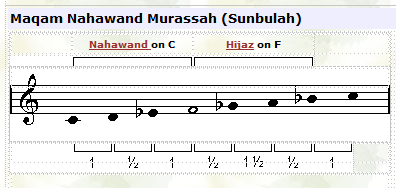 Maqam Nahawand Murassah should not be confused with form 1 of maqam Nahawand (Nahawand-Hijaz), since although they both have the same lower and upper ajnas, the starting point of the Hijaz tetrachord (which is also the dominant) is a different note. |
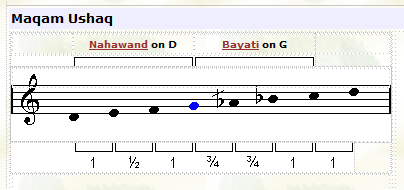 In this maqam the tuning of the third note (F) is played lower than usual. |
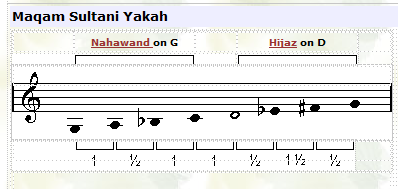 Maqam Sultani Yakah is a transposed version of maqam Nahawand, starting on G. |
|
Maqam Nahawand has two versions shown above. In general the first version (Nahawand-Hijaz) is used on the way up, and the second version (Nahawand-Kurd) is used on the way down. |
Maqam Farahfaza
has the same tonal intervals as maqam Nahawand
transposed on G. However its melodic development is different, and makes much
use of the Ajam trichord on the third (B
|
Maqam Rast and Family
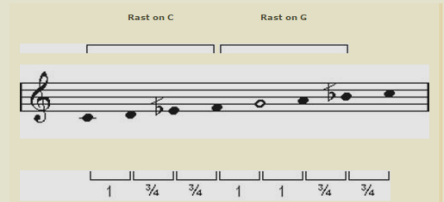 |
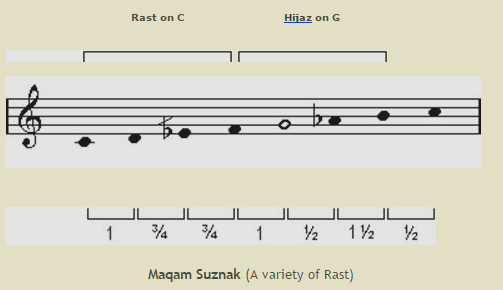 |
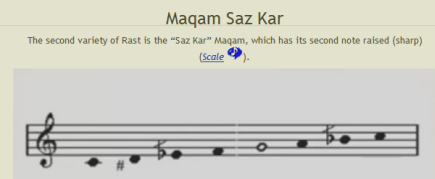 |
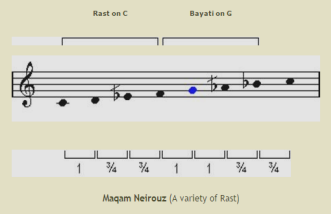 |
 |
Maqam Saba and Family
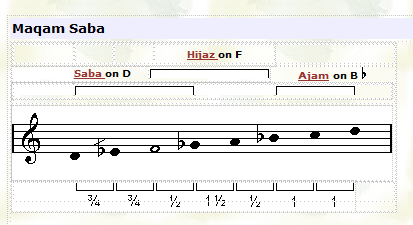 |
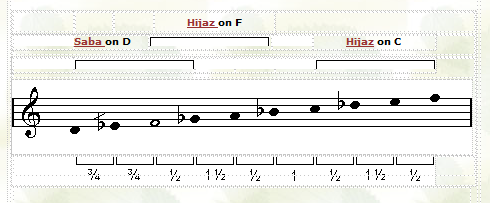 |
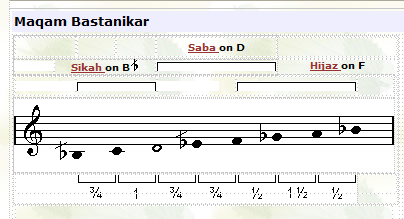
Maqam Bastanikar
is unusual because it does not end on the octave (it ends on B
|
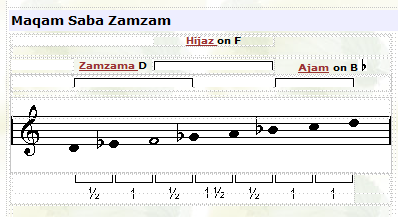 Maqam Saba Zamzam resembles maqam Saba, except the 2nd note is 1/4 step lower. In other words instead of the first 3 notes forming the beginning of a Bayati tetrachord, they form the beginning of a Kurd tetrachord. |
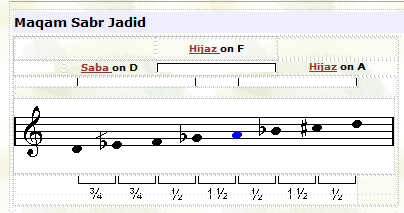 |
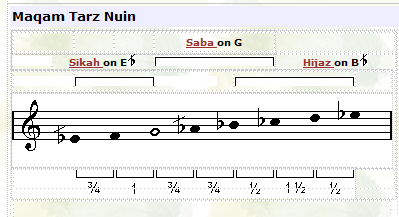 |
Maqam Sikah and Family
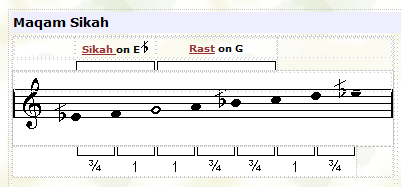 |
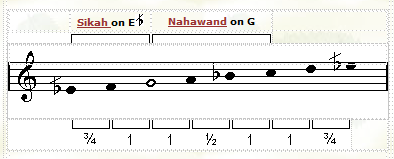 |
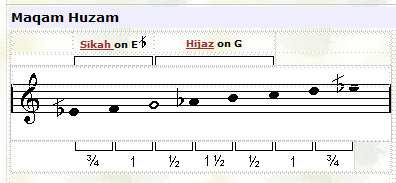 |
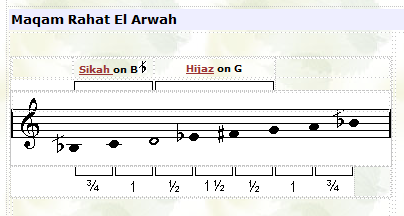 |
 |
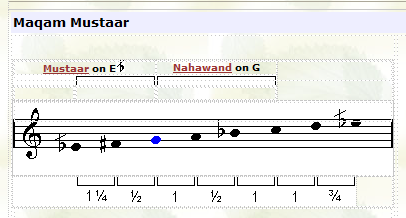 |
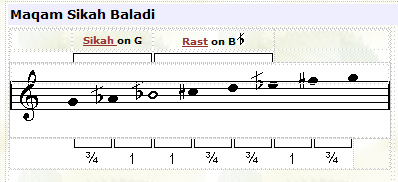 |
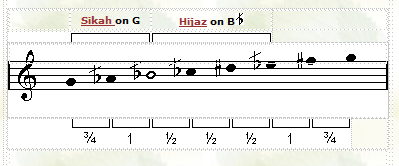 |
